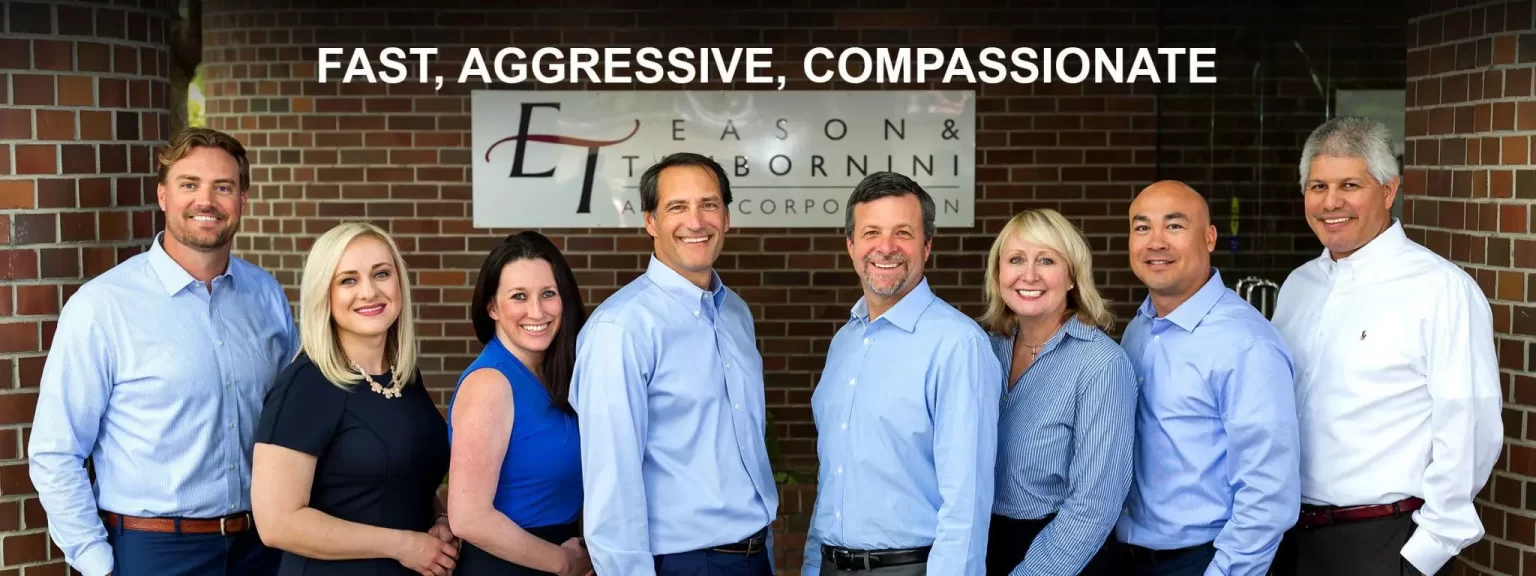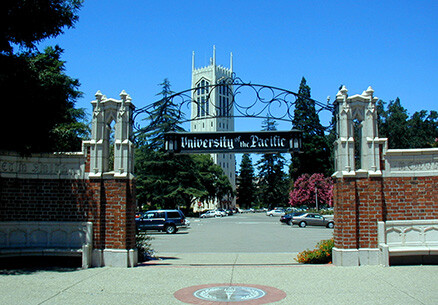
Stockton Personal Injury Attorneys
If you need a personal injury attorney in Stockton, the personal injury attorneys at Eason & Tambornini offer more than twenty-five years of experience in various personal injury laws. When we take your case, you will have a partner fighting for your rights.
 Our Stockton personal injury attorneys carefully build strong cases that win maximum results. We explain the entire process so you can understand what is happening at every stage, stay in close communication, and guide you through all aspects of the personal injury claims process. We will represent you in court if we can’t settle.
Our Stockton personal injury attorneys carefully build strong cases that win maximum results. We explain the entire process so you can understand what is happening at every stage, stay in close communication, and guide you through all aspects of the personal injury claims process. We will represent you in court if we can’t settle.
Personal injury victims need help: advice, support, and legal expertise to handle all the details. That’s why our Stockton personal injury attorneys offer a free, no-obligation consultation to find out the details of your case, explain how the process works, and give you a chance to ask questions. We won’t take your case if we don’t win.
Call our personal injury attorneys in Stockton today at (209) 323-5126 to schedule your free consultation.
Table of Contents
No Recovery, No Fee
Our Stockton personal injury attorneys work on a contingency fee basis, meaning you pay no fees until you win your case and a settlement is reached. If a settlement cannot be reached and your case goes to trial, there is still no payment until the trial ends. If you don’t win, you don’t pay.
Your Trusted Stockton Personal Injury Lawyer
We understand that dealing with the aftermath of an injury can be complicated and overwhelming. When you partner with one of our Stockton personal injury lawyers, you are partnering with a trusted professional whom peers recognize as highly competent in personal injury law. We are proud to be members in good standing of the San Joaquin County Bar Association, Capitol City Trial Lawyers Association (CCTLA), and the State Bar of California.
Not only have our personal injury attorneys practiced in this region for decades, but one of our lead attorneys, Rando A. Rodriguez, was born and raised in Stockton. We are highly familiar with and have excellent working relationships with Stockton Superior Court professionals and other professionals in the area, such as investigators and medical providers.
Stockton Personal Injury Cases We Handle
Our Stockton personal injury attorneys are experienced across many types of personal injury cases, including the following:
- Bicycle Accidents
- Brain Injury
- Car Accidents
- Catastrophic Injury
- Construction Accidents
- Dog Bites
- DUI Accident Victim
- Insurance Claims
- Motorcycle Accidents
- Pedestrian Accident
- Product Liability
- Truck Accidents
- Workers’ Compensation
- Wrongful Death
Our Personal Injury Attorneys’ Connection to the City of Stockton
Our trusted and experienced lawyers have a long and personal connection to the city of Stockton. Four of our attorneys graduated from McGeorge School of Law, part of Stockton’s University of Pacific. We care deeply for this city and believe the residents of Stockton deserve the best legal care, especially after enduring a personal injury. When you partner with one of our Stockton personal injury attorneys, you can rest assured we will pursue recovering the maximum amount possible for our clients.
FAQ: What is Considered a Personal Injury Case in Stockton?
In contrast to property damage rights, personal injury includes injury to a person’s body, emotions, or reputation. When damage (injury) happens due to another person or entity’s negligence or wrongful act, a personal injury case may be possible. Since personal injury cases are considered civil cases, not criminal, the injured person can receive monetary damages or compensation for injuries.
FAQ: Are wrongful death cases the same as personal injury cases?
Whereas the injured party (or parent of a minor child, on their behalf) files a personal injury claim, in the case of wrongful death, certain loved ones of the deceased person can file another type of personal injury case called wrongful death. We have extensive experience in wrongful death cases and would happily schedule a free consultation to discuss.
FAQ: How bad does a personal injury claim need to be?
Personal injury cases can be minor or catastrophic; the same injury may affect people’s lives differently. In other words, permanent nerve damage to an arm may not affect a high school teacher’s ability to earn an income like a construction worker’s ability to earn a living. Monetary damages are measured by how much harm or loss you or your family sustained by negligent conduct. If you or your loved one suffered a personal injury because of another person’s negligence, contact a personal injury lawyer in Stockton who understands the legal system and has experience litigating these types of claims.
Stockton’s Most Common Personal Injury Cases
Personal injuries occur for many reasons and in many different environments. Each situation is unique to the victim and their family. Some of the most common personal injury cases in Stockton are:
- Broken bones
- Spine and neck injuries affecting mobility
- Burns and severe lacerations
- Head and brain injuries affecting cognition
- Scarring and disfigurement
Our personal injury lawyers in Stockton have defended victims’ rights in cases involving the above injuries and more.
Aggressive Stockton Personal Injury Attorneys Who Will Fight for You
If you’ve recently experienced an injury or you’re managing the long-term effects of an injury, you’re likely dealing with both physical pain and mental stress. You must understand what to do after the accident and what to expect when you file a claim with your insurance company, and we will explain everything you need to know. We will also fight aggressively on your behalf from start to finish, take the lead in negotiating with the responsible party’s representatives, prepare your case, and take it to trial if a fair outcome cannot be reached in the settlement process.
Our Stockton personal injury attorneys will take the legal weight off your shoulders and give you the space and time to heal. That includes deferring any payment until you win your case—and only if you win. Our job is to get you on the road to medical and financial recovery.
How to Reach a Stockton Personal Injury Attorney Today
Our Stockton personal injury attorneys at Eason & Tambornini have helped residents win fair and complete settlements for more than twenty-five years, and we bring a combined 100 years of experience to every case.
If you or your loved one have experienced a personal injury, please call us today at (209) 323-5126 and schedule a free no-obligation consultation to discuss your case.
